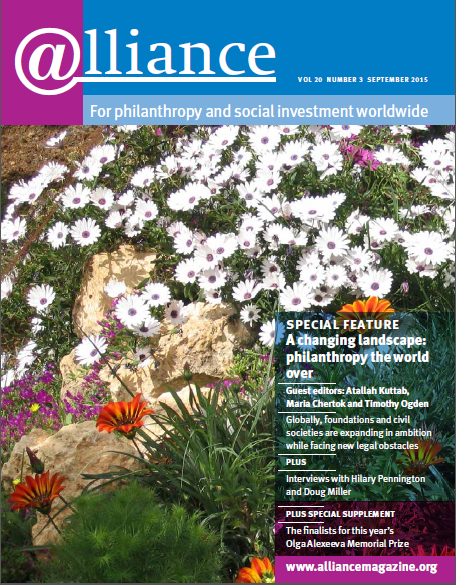Buzz Schmidt describes a world in which foundations and their overpaid advisers conspire to maintain an untroubled life for the former and plentiful fees for the latter. While I agree that foundation accountability raises important issues, as a practitioner from the UK, this dystopian picture is not one that I recognize.
One of his recommendations is to: ‘require each PI to submit an annual trustee report, akin to that required by the Charity Commission of England and Wales. These would report the PI’s accomplishments, operating efficiencies, risks, and progress towards meeting long‑term objectives and be endorsed formally by each trustee.’
Charitable foundations in the UK are required to operate to the same set of rules as all charities, including those that raise money through public subscription. In principle, therefore, they are subject to the same standards of transparency and accountability as other charities, but in reality, of course, they are not under an obligation to account for their actions or their performance to funders or to the general public in the same way. In practice, provided they behave lawfully and act within the terms of their founding documents, the trustees of charitable foundations are free to act pretty much as they see fit.
Some would argue that foundations should be subject to additional rules and controls. However, this would risk losing the very thing that makes them worth having in the first place. Foundations may lack accountability, but the corollary is they have independence; independence allows them to work long‑term, ignore or oppose orthodoxies, innovate, take risks, and challenge government thinking.
Schmidt suggests that an ‘independent private body’ should assess reports, honouring the good ones and ‘calling out’ the bad. If the reports are publicly available, any individual or organization can do just that. It would be dangerous to formalise this. Who would appoint this ‘independent’ body’s members, and to whom would they report? The obvious risk is that the state would want to get involved.
There is also a risk to future philanthropy. No one is obliged to use their money to set up a charitable foundation. Those that do so enter into a kind of bargain. The state offers various advantages – notably tax relief – and in return, the philanthropist accepts constraints: the money must be spent for public benefit, and in a way that is subject to regulatory requirements. Introducing further scrutiny and constraints runs the risk of deterring future philanthropists.
Anthony Tomei is a trustee of the Bell Foundation and a visiting professor at Kings College London.
Next letter to read:
Accountability boils down to beneficiaries
Take advice from community funds
Make more philanthropy






Comments (0)